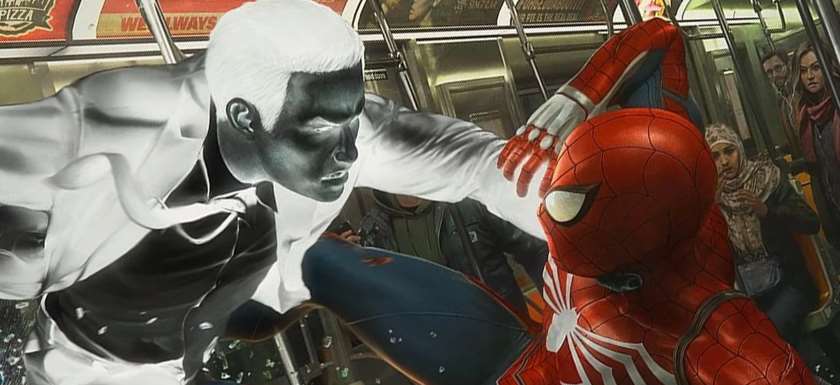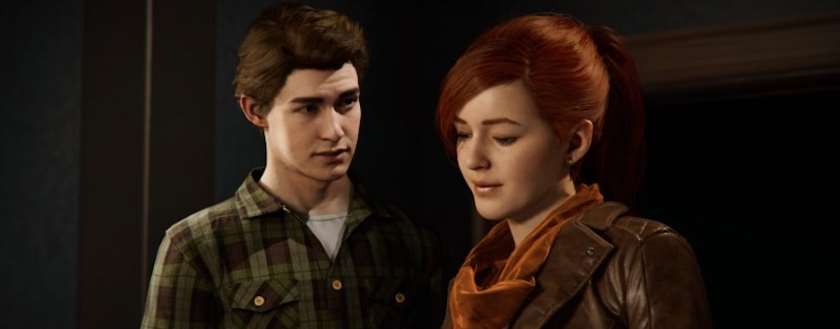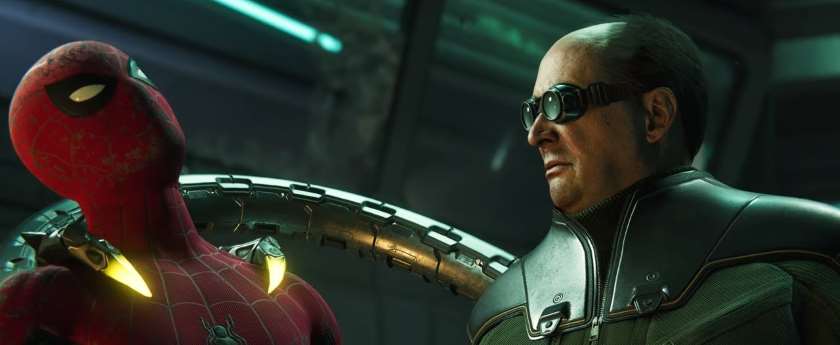Great Power Corrupts Greatly

Warning: This essay will contain spoilers for the villains and ending of Marvel’s Spider-Man on PS4.
It seems every time someone takes their turn making a new Spider-Man story, they have to lean heavily into that theme of great power and great responsibility. Seeing as Insomniac chose to make their Peter Parker an eight year veteran of web-slinging through New York, it wouldn’t quite do to have him learn this particular lesson. Instead, they chose to tackle this concept in three separate ways. Focusing on characters that were corrupted by the great power they’ve been given, by teaching Peter he doesn’t have to shoulder the responsibility on his own, and forcing him to test his conviction in how committed he is to that responsibility.
Unfortunately, each theme seems to be sort of tackled at separate times rather than coming together in a properly cohesive manner. It’s also possible that the open-world nature of the game interferes with the narrative’s pacing, shifting my focus away from what the game is trying to tell me so that I can collect baubles and conquer challenges. When your attention is so easily pulled free from the story’s stakes, it’s hard to feel the intended emotional resonance.
Let’s first start with Pete learning to accept assistance. This is probably the theme I most greatly struggle with as I was never sure what the developer wanted me to think about its characters. I don’t want to get too deep into it, but like Hollywood’s stereotypical depiction of people with tourette’s syndrome, Marvel’s Spider-Man has a tendency to reveal its politics in sudden outbursts. Similarly, plenty of writers in the games press have been celebrating Mary Jane’s turn to be a hero of her own sort.
This has always made me a bit uncomfortable. Am I supposed to think Peter is wrong for trying to keep an untrained civilian out of harm’s way? If we were to remove the supernatural, comic book fiction from the scenario and assume Peter was instead a cop, would we feel like he was being a jerk? Overly protective? Or would his concern seem legitimate as Mary Jane rushes head-first into a criminal’s lair or a mercenary outfit’s well-armed camp?
I think the perspectives of others has clouded my own judgment regarding this story beat, however. Or at least, my expectations of it. Given how the events play out, I think we’re supposed to understand and relate to both sides of the argument. Mary Jane’s insistence on doing more than standing on the sidelines, and Pete’s concern regarding the safety of a loved one. I don’t think the game wants us to think either side is wholly right or wrong, but wanted to dramatize the sort of relationship troubles that could develop between a civilian and a superhero.
In so doing, Peter Parker learns that he doesn’t have to bear the great responsibility of the city alone… only, he hasn’t been. This is my real gripe with the whole notion of Peter having to learn to accept help. He’s received plenty of assistance from the cops and works closely with Captain Yuri Watanabe. He’s always informing her of his latest discovery and formulates his next move with her. While Marvel’s Spider-man has come under some heat for Pete’s status “as a narc”, it shows that he already believes in working with others.

Perhaps what Marvel’s Spider-Man ought to have done was have several moments where Peter and Yuri butted heads. Have Peter disregard Yuri’s desire that he wait for back-up, jumping head-first into danger. After a particularly disastrous outcome – perhaps the Demon attack on campus resulting in a Professor’s death – Yuri is forced to cut ties and threatens to arrest him on sight. It would be at such a point that Pete might finally learn to start accepting some assistance and working with others, first allowing Mary Jane and Miles to help, and finally making amends with Yuri as the city becomes a war zone.
Which would thematically fit in with the rest of the narrative’s structure. The villains come together to work as a team, so it would only make sense that Peter would need to assemble his own. It would simply be a much more unlikely grouping.
Of course, there’s already enough reflection between Spider-Man and his rogue’s gallery. As we already know, it was Uncle Ben’s influence that kept Peter Parker on the straight and narrow so that he might use his super powers altruistically. In Marvel’s Spider-Man, Otto Octavius is what happens when that surrogate father goes awry. While much of the game portrays Martin Li as the key villain of the story, it is Otto Octavius that will pose the biggest threat. Who can be surprised? Predictions were already flying at this year’s E3, and it doesn’t take long to realize that the only other option for the leader of the Sinister Six would be Norman Osborne. A reveal that, in this narrative, would just not make sense given Osborne’s status as a target.
So Peter has three men he is familiar with all using their great power selfishly. Martin Li had developed a successful shelter, but he had become obsessed with his desire for vengeance against Norman – the man responsible for his Mr. Negative powers and the death of his parents. Otto, meanwhile, has been unable to succeed ever since he left Oscorp. and is driven to villainy after Osborne makes a mayoral decision to shut him down. He also seeks little more than vengeance. Norman himself, it turns out, is willing to ignore and even bury all risks in researching a cure for his son Harry’s illness.
All three men become fixated on the Devil’s Breath macguffin. Both Li and Octavius, men who had built careers out of trying to help others, use the Dragon’s Breath to harm innocent people for the sake of their vendetta. Norman Osborne has been focusing on separating himself from it, hoping to avoid any potential fallback that would harm his company or his political career.

So Peter is left trying to save the people of the city and find the antidote to Devil’s Breath. Unknowingly, his Aunt May has become infected herself, and this culminates in a final decision. Does he cure Aunt May, or does he allow the lone sample of the antidote to be replicated so that many more will survive?
I only wish the game did a better job of building up to this. Not that they didn’t hint at Aunt May’s potential demise. She didn’t become infected suddenly or anything. However, the game was far more focused on Pete’s relationship with Mary Jane that Aunt May’s presence merely seemed to be a grounding for him. Something that reminds us Peter is not always Spider-Man. As it was, it was hard to feel any sort of sad emotion as I contemplated all the other Aunt Mays still alive and kicking in alternate media.
So while I greatly appreciate Pete’s final choice – to really test how committed he is to his great responsibility – I felt nothing as the heart monitor flatlined.
Once more, however, I have to question whether this was truly the fault of the game’s writers or was more the fault of the open-world structure. None of the side quests or optional activities involve Aunt May – and wouldn’t it have been amusing having to hop across the city getting groceries for her? – so she quickly becomes a tertiary character. She’s present, but she’s not important. So when the hour finally comes for Peter to make his choice… it rings a bit hollow.
Nevertheless, Marvel’s Spider-Man is one of the few open-world games I would eagerly return to, and the story is one of those reasons. It may not be perfect, but it’s trying more than we give games credit for. Couple that with enjoyable traversal mechanics and an upcoming New Game Plus mode, and that’s a recipe for an easily revisited game.
So easily, perhaps, that it could become a future episode of RamblePak64?


